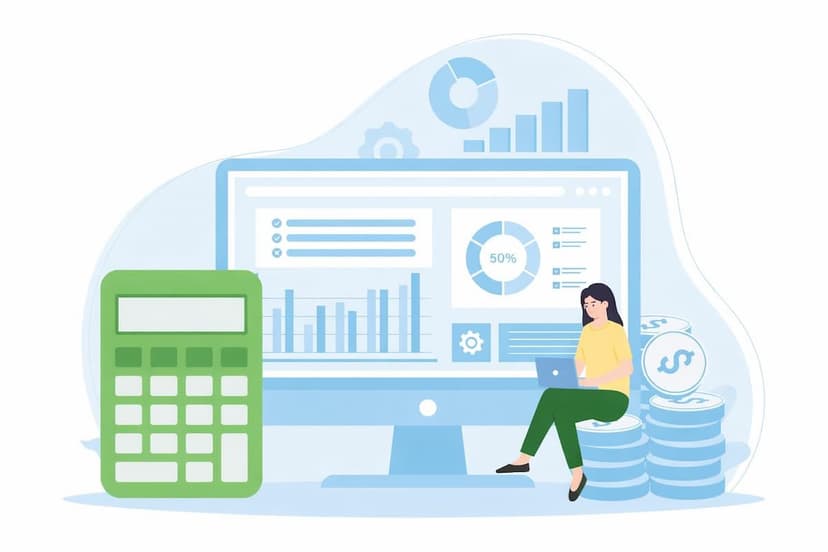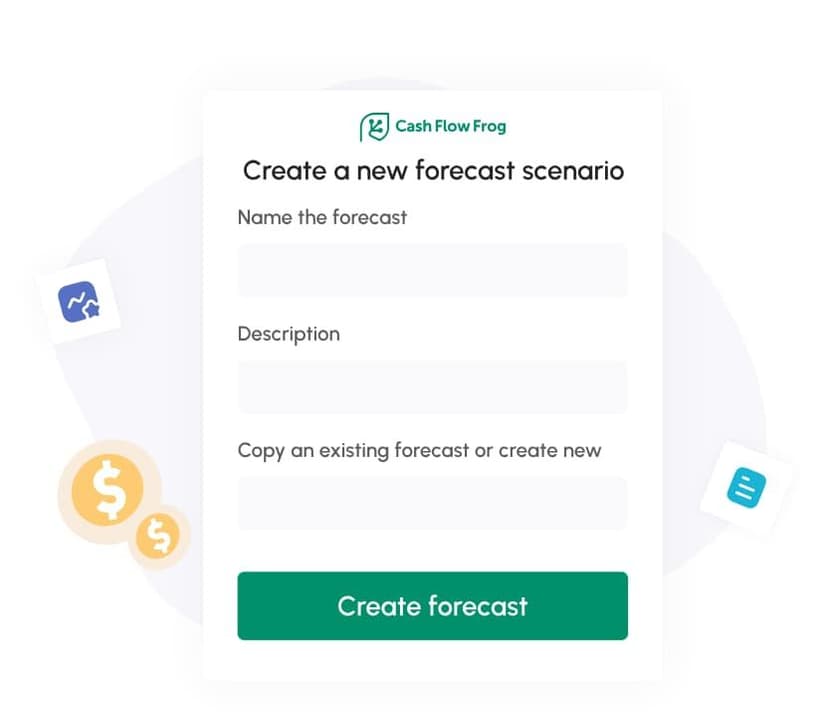What is Ledger Balance? Ledger vs Available Balance

Understanding the difference between ledger and available balance can help improve your financial management skills. Both play important roles in managing your money, but each term refers to different things.
Let’s take a closer look at what ledger balance is, what available balance is and how to monitor them.

What is Ledger Balance?
So, what is ledger balance, exactly? The ledger balance refers to the opening balance in a checking account each morning. It’s sometimes called the current balance.
Banks update ledger balances at the end of the day after all transactions have been processed and approved, including cleared checks, deposits, withdrawals, interest income, bill payments and other activities. It’s an automatic process that doesn’t require any action on your part.
Once the ledger balance has been calculated by the bank, your checking account will show the new balance at the start of the next business day.
How is Ledger Balance Calculated?
Ledger balance is calculated by your bank at the end of each business day. It includes all transactions that are calculated that day, including:
- Cleared checks
- Deposits
- Interest income
- Debit transactions
- Cleared credit cards
- Wire transfers
- Debit transactions
Let’s say that you have a ledger balance of $200. You have a total of $25 in credits for the day, which you deposited at your local bank. You also debited $15 from the ATM. Your new ledger balance would be $210 the next business day.
It’s important to note that the bank handles these calculations for you, and it is an automated process.
But if you don’t want to wait for the bank to do its calculations, you can determine your own ledger balance by:
- Adding all credits to your opening balance.
- Subtracting all debits.
Now that you have a better understanding of how ledger balance is calculated, let’s take a look at the difference between ledger balance vs available balance.

Ledger vs Available Balance
While they are similar in nature, ledger and available balance are two separate things. So, what’s the difference between ledger balance and available balance?
- Available balance is the amount of money available for withdrawal at any given time.
- Ledger balance is the opening balance at the start of the business day.
An account’s available balance may fluctuate throughout the day, depending on your activities. Ledger balance, on the other hand, is only updated at the end of the day.
Available balance also takes into account all debits and credits from transactions that haven’t been posted to bank accounts, whereas ledger balance does not.
Factors that Affect Ledger and Available Balance
Available balance is the money that you have at any given time during the day. Ledger and available balance have many factors that may affect them, including the following:
1) Pending Deposits and Withdrawals
Deposits and withdrawals may take time, affecting when funds become available.
For example, if you deposit a $1,000 check, your ledger balance may show the amount, but the available balance won’t update until the check clears.
2) Processing Delays
Your transactions on weekends, holidays, or after business hours may not reflect immediately.
A $500 ATM withdrawal at night may reduce your available balance, but your ledger balance may not update until the next day.
3) Bank Transfers
Transfers between accounts, especially between banks, may take a few days to process.
You transferred $2,000 from your checking to your savings account. Your checking account may show a lower balance, but the savings account may not immediately reflect the deposit.
4) Holds and Pending Transactions
Some merchants place temporary holds on funds before final charges go through.
For instance, online merchants authorize a hold for your purchase, reducing your available balance until the merchant releases the hold.
5) Overdrafts and Fees
Spending more than your available balance can lead to overdraft fees or declined transactions.
Making a $500 purchase with only $450 available in your account may go through with overdraft protection but result in a $35 fee.
6) Automatic Payments
Scheduled bill payments and subscriptions can reduce your available balance before posting to the ledger.
A $100 utility bill set for auto-pay may not yet appear in your ledger but will lower your available balance in advance.
Your available balance changes throughout the day because of pending transactions, processing times, and scheduled payments. Monitoring these balances helps you prevent overdrafts and unexpected fees.
How to Monitor Ledger and Available Balance
You can monitor your own internal ledger to have a general idea of your ledger balance, but most companies rely on their bank’s platform to show them the available balance. Bank available balance information is often more accurate because:
- Delays can occur, meaning even though the transaction is pending, you cannot use the balance
- Errors can occur in your own internal ledger
You can use internal software that connects to your bank’s platform to help you monitor your ledger and available balance. However, if an error occurs, you’ll need to work with your banking institute to help rectify the issue.
To help you monitor these balances more accurately, consider these best practices:
Use Online and Mobile Banking Apps
Most banks provide apps that display your real-time available balance, including pending transactions.
Enable Balance Alerts
Set up notifications for low balances, large transactions, or deposit confirmations to stay updated.
Link Accounting Software
Tools like Cash Flow Frog or financial management apps can automatically sync with your bank to track balances.
Check for Delays or Errors
Transactions may take time to process, and discrepancies can occur. If you notice an issue, immediately contact your bank for clarification.
Modern banking solutions will help you monitor balances more effectively and reduce the risk of overdrafts and unexpected fees.
Practical Examples of Using Ledger and Available Balance
Understanding the difference between ledger vs available balances is essential if you want to avoid financial mistakes. Here are some scenarios where misinterpreting them could cause issues.
Case 1: Overdrafts
Let’s say you see an average ledger balance of $800 and an available balance of $600 due to a pending check deposit. If you spend $750, it may trigger an overdraft and a fee.
So, always check the available balance before making purchases, no matter the amount.
Case 2: Holds
You see an available balance of $5,000 in your accounts before paying rent. However, let’s say you have a hold of $1,200 from an online transaction—this will lower your available balance to $3,800. If your rent is $4,500, your available balance may not cover it.
Temporary holds reduce spending power—always account for them in budgeting.
Case 3: Payroll Processing Delays
When you process payroll on Friday, the salary fund will not be deducted until Monday. Spending this money on the weekends will lead to insufficient funds.
Always remember to factor in processing delays when scheduling payments to avoid issues.
Awareness of the difference between ledger vs available balances helps you manage and budget your money wisely.
Impact of Ledger and Available Balance on Business Decisions
Understanding the available and ledger balance meaning leads to effective financial management. Here’s how.
- Managing Cash Flows: These balances affect how you can cover operational expenses, such as payroll and vendor payments.
- Avoiding Financial Mistakes: Tracking your ledger and available balances prevents overdrafts, late fees, and cash shortages.
- Making Strategic Investment Decisions: Assessing your available balance will help you decide whether to pursue investment opportunities.
In short, monitoring these balances will help you maintain liquidity and avoid costly errors.
Conclusion
Financial management requires continued monitoring of your ledger and available balance. Your ledger balance is what’s available at the end of the day and will be the amount of money in the account the next business day.
Frequently Asked Questions (FAQs)
1) What is a ledger balance?
The ledger balance is the amount in your account at the start of your business day.
2) Can I spend money from my ledger balance?
This is not always the case. Ledger balances do not reflect pending transactions. Always check your available balance to be sure.
3) Why is my available balance lower?
Pending transactions, authorization holds, and scheduled payments can reduce your available balance.
4) What happens if I overspend?
You may face overdraft fees or declined transactions.
5) How can I track my balance?
Banking apps and alert notifications update you in real-time regarding your available balance.

How to Calculate Free Cash Flow (FCF): Formulas + Real Examples
Read more

The 3 Types of Cash Flow: What They Mean and Why They Matter
Read more

Cash Flow Forecasting Template
Read more

Your Guide To Financial Metrics And KPIs
Read more

10 Cash Management Trends for 2026
Read more

10 Best Cash Flow Business Ideas: Build Income That Counts
Read more
FAQ
Trusted by thousands of business owners
Start Free Trial Now